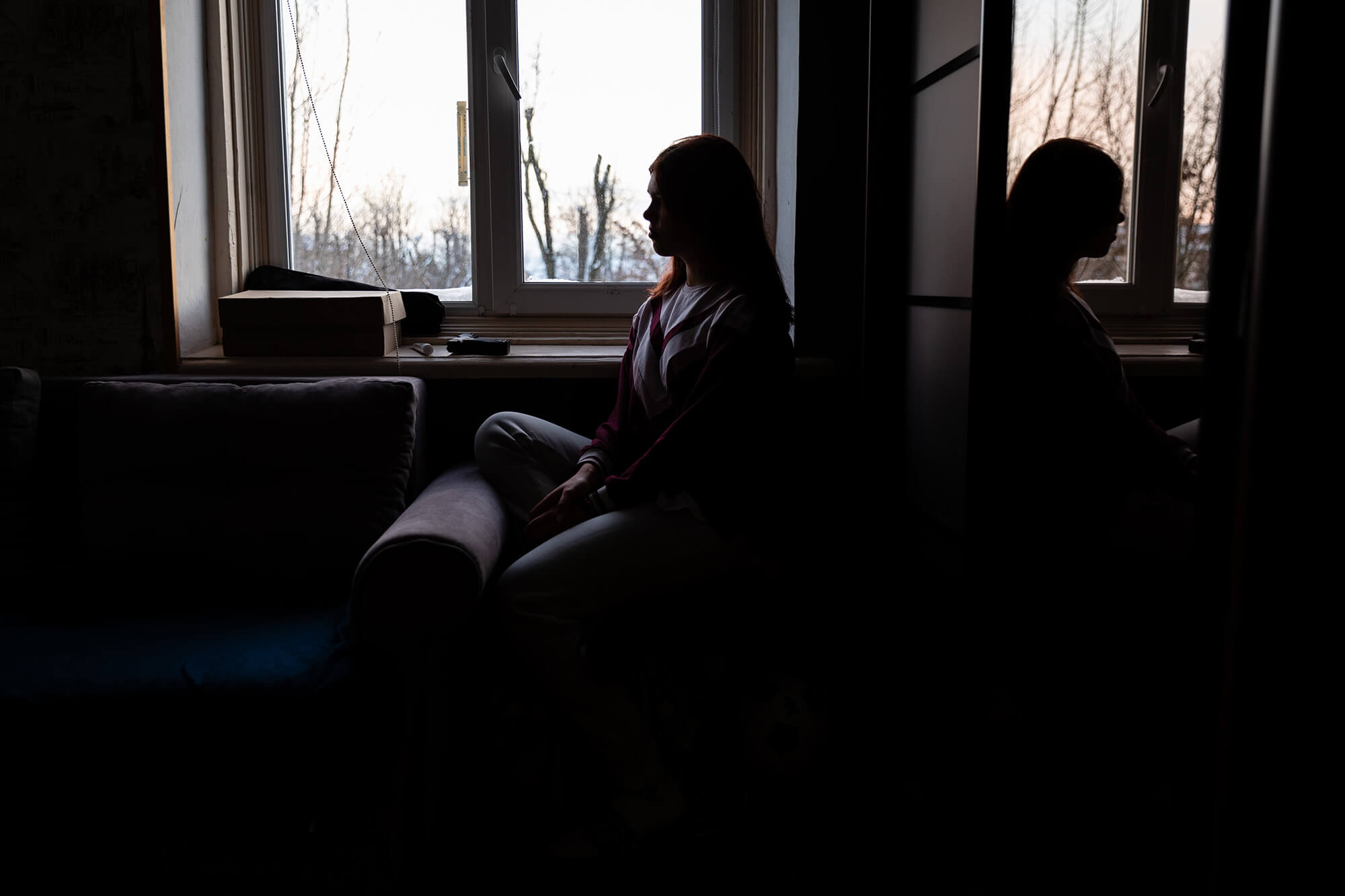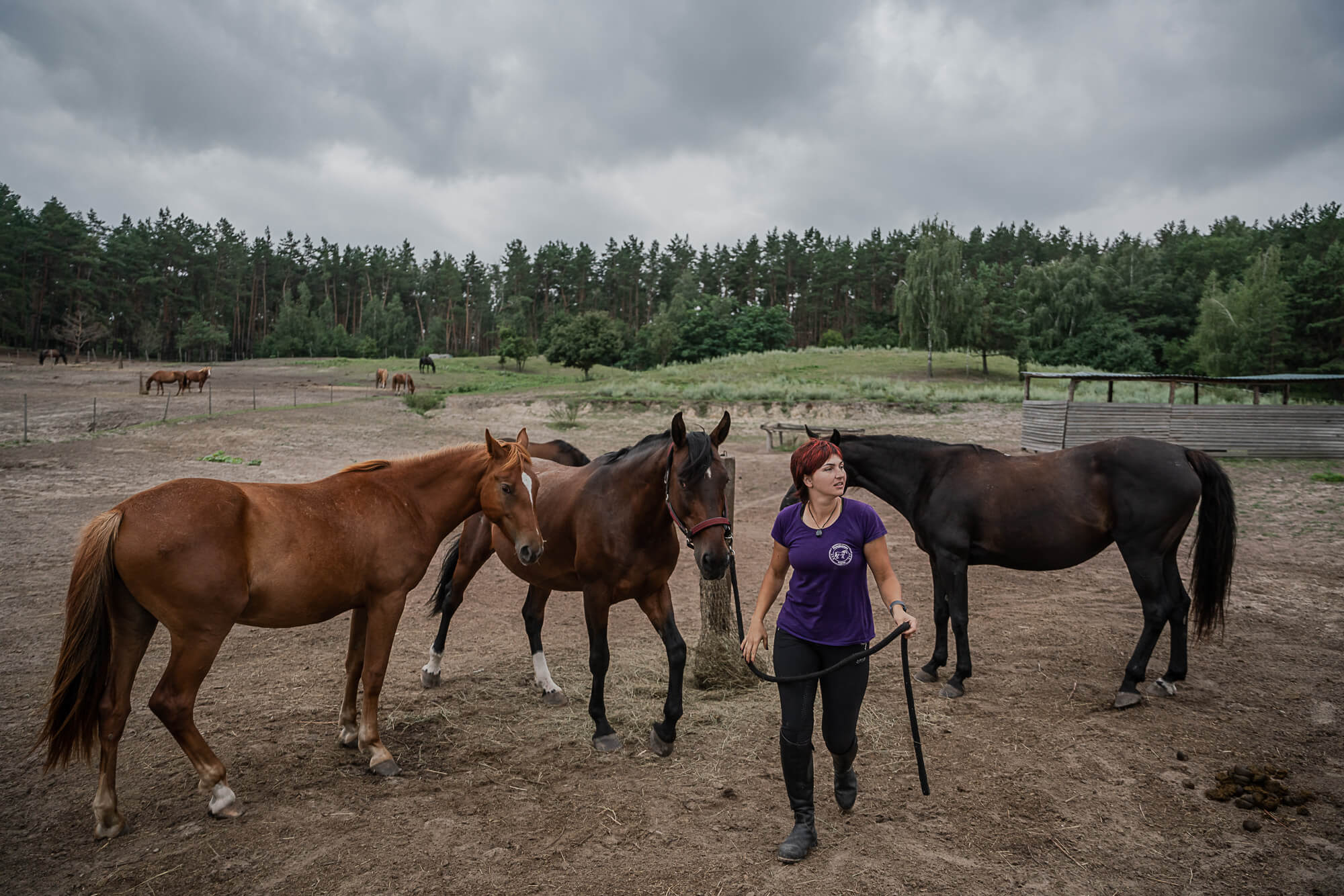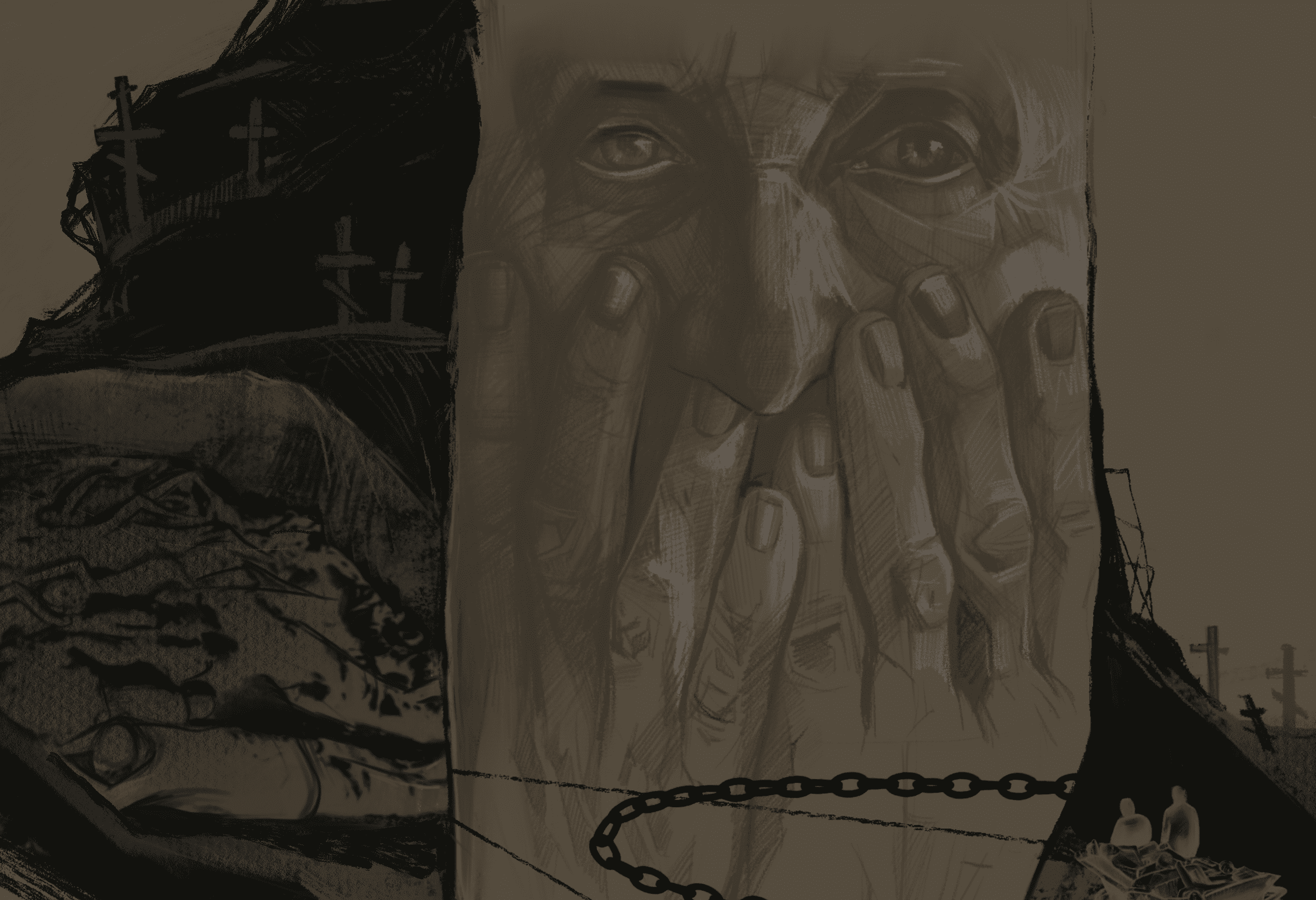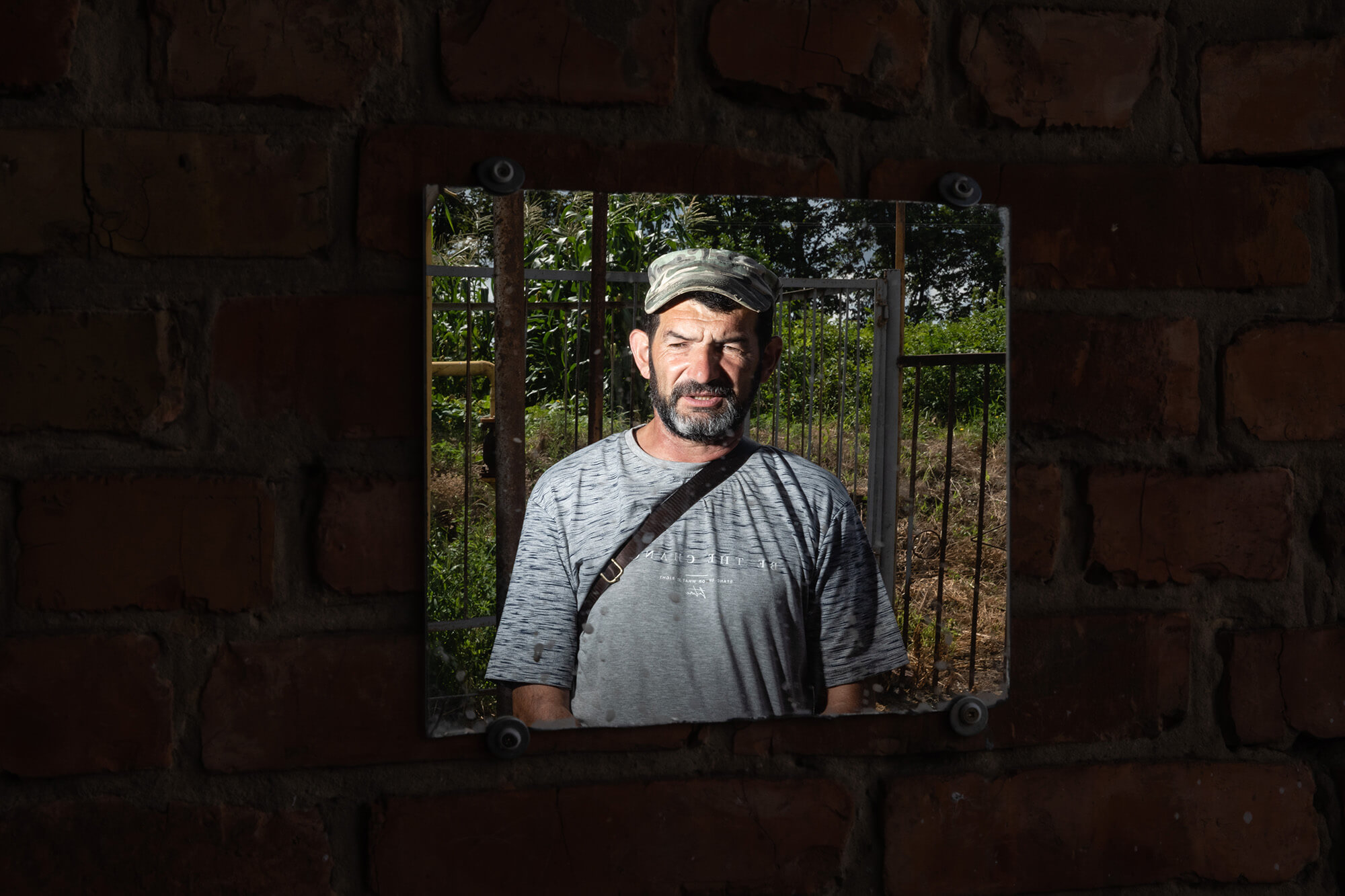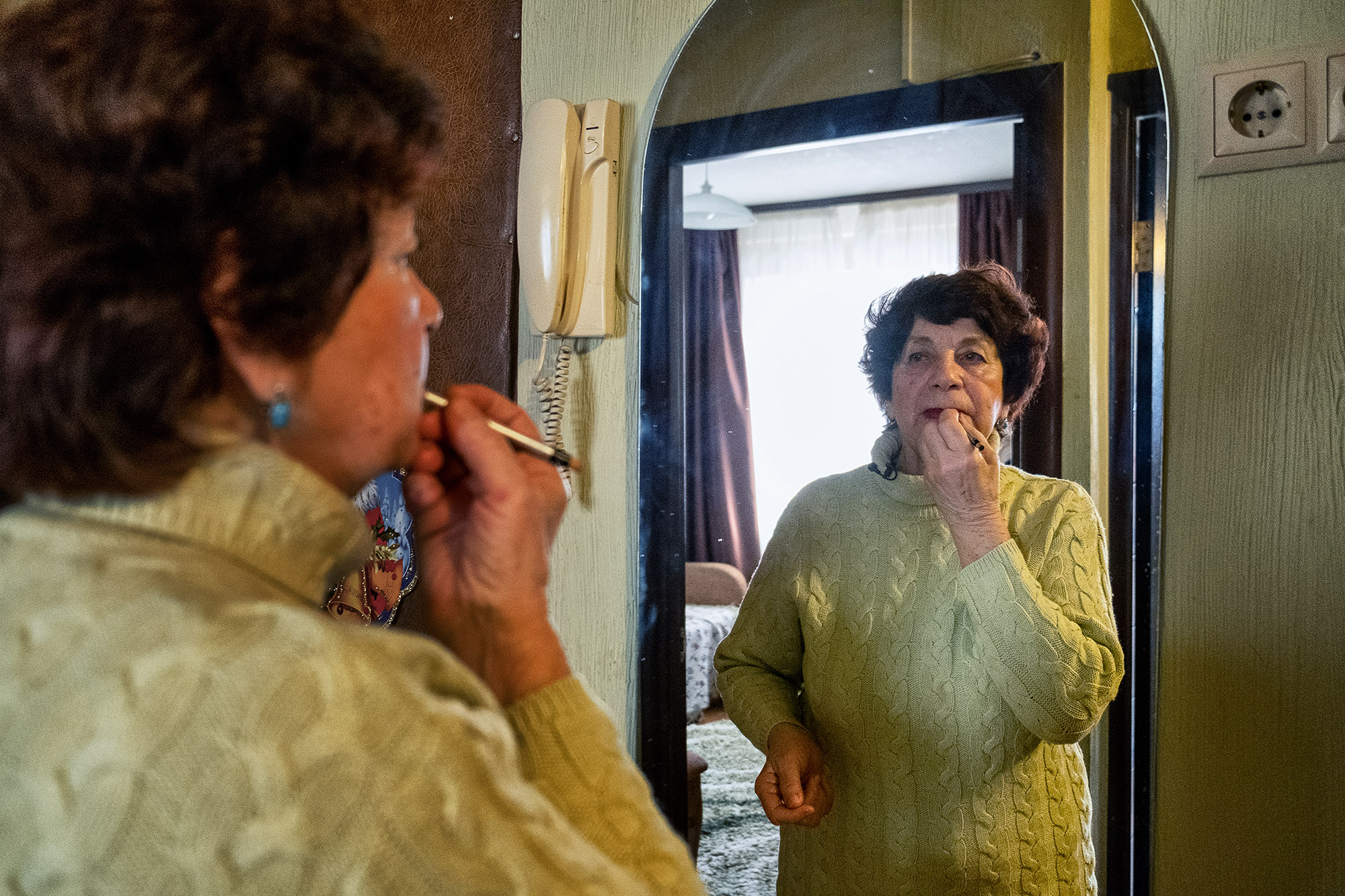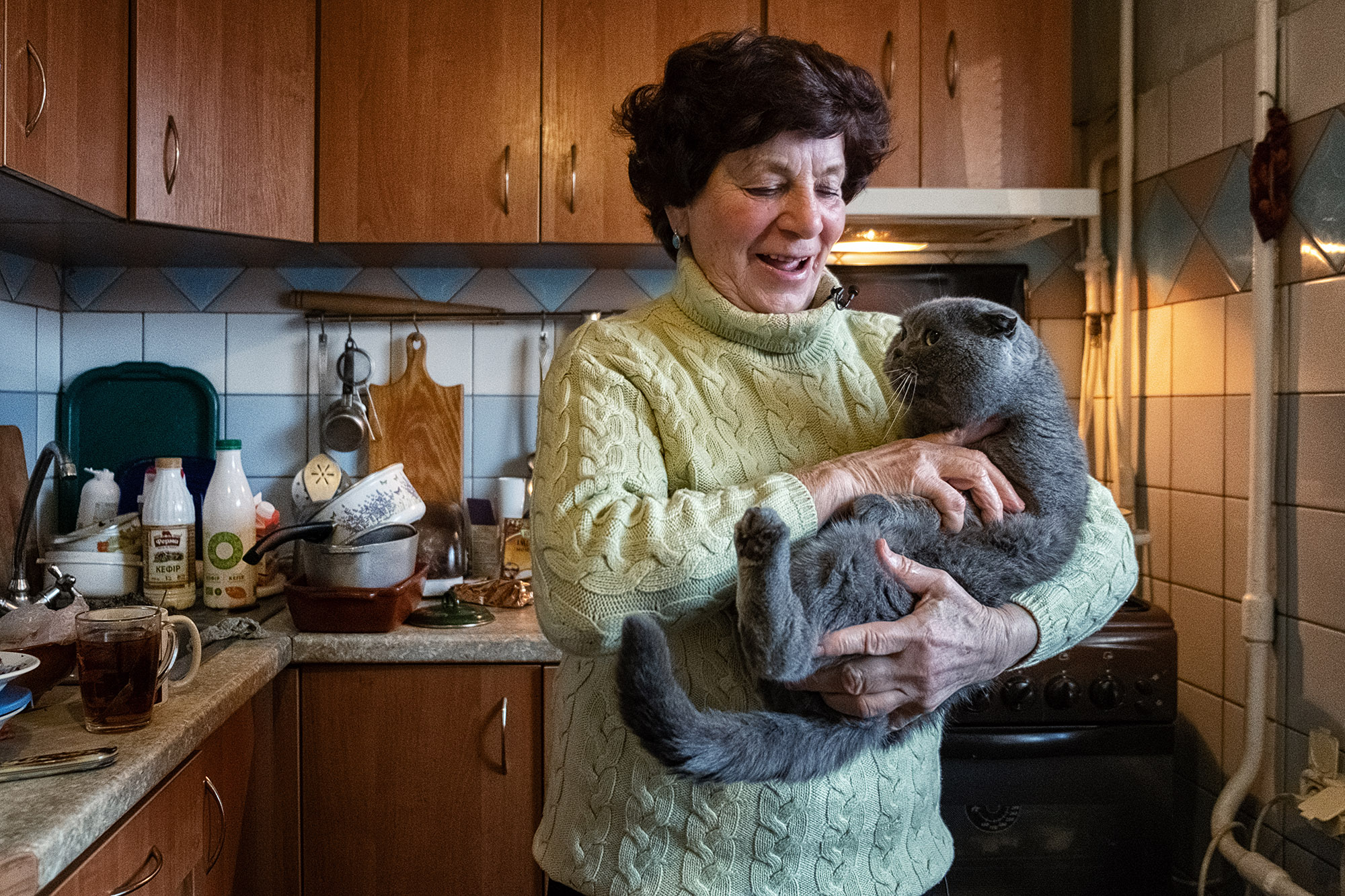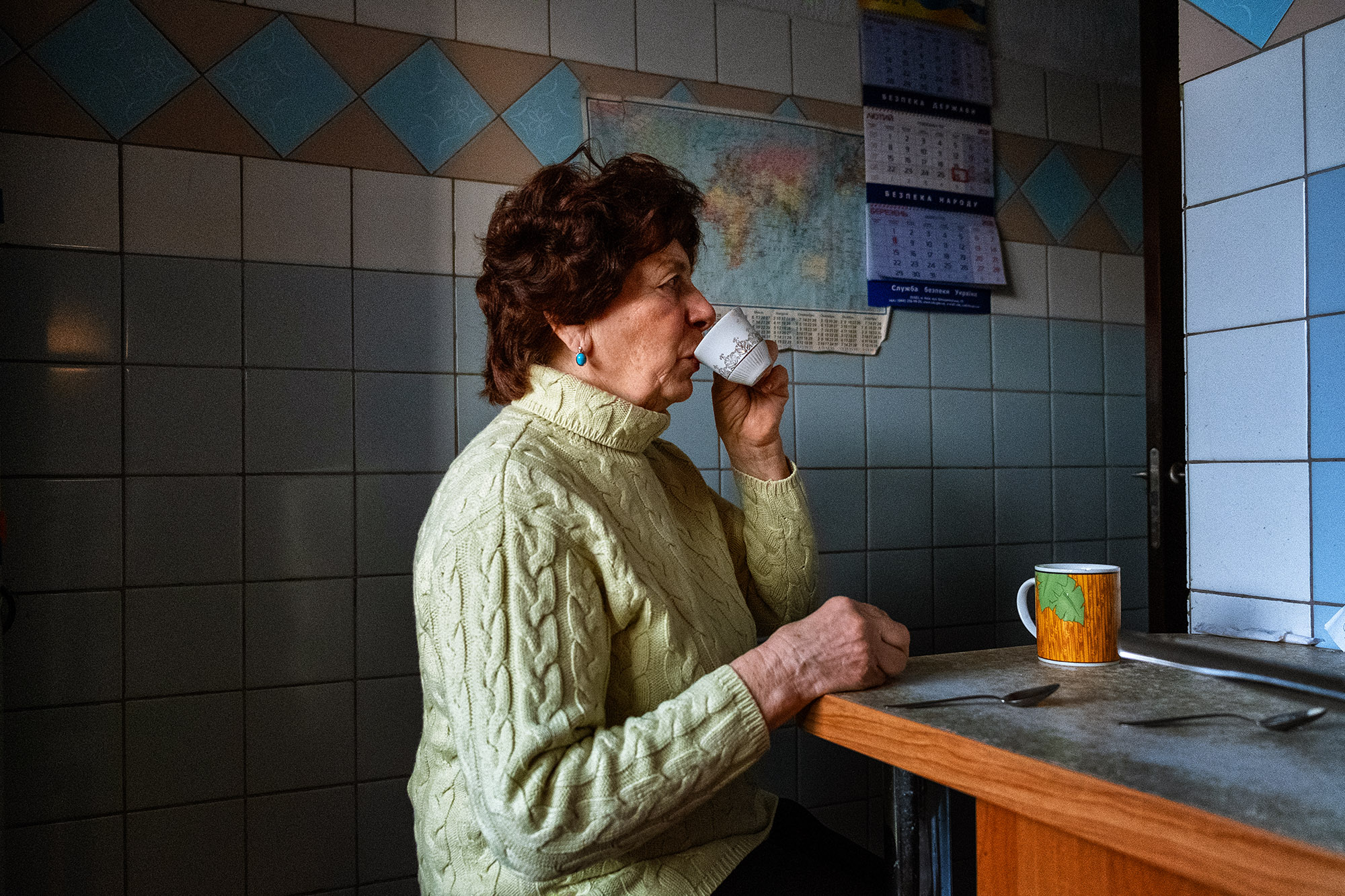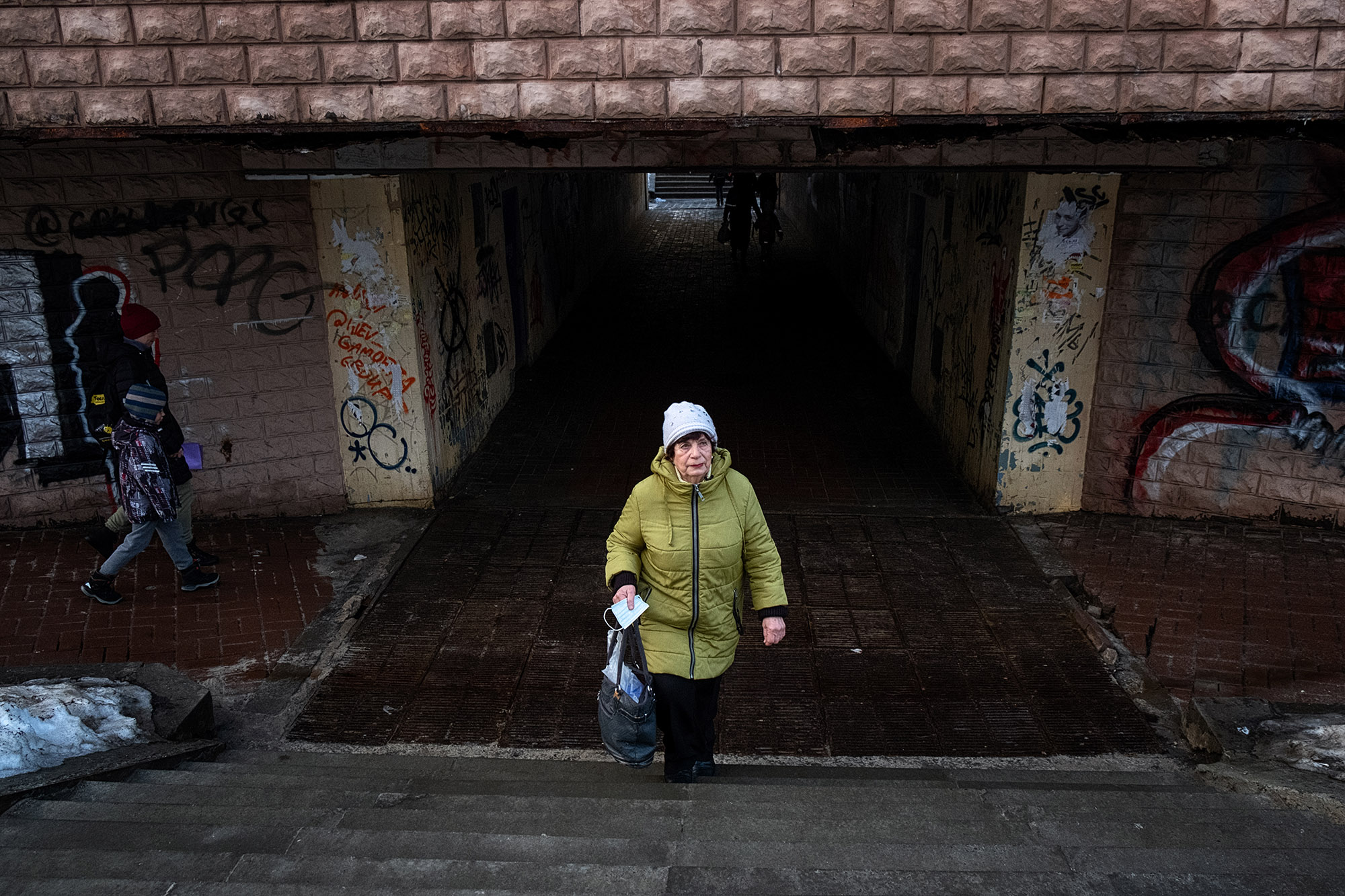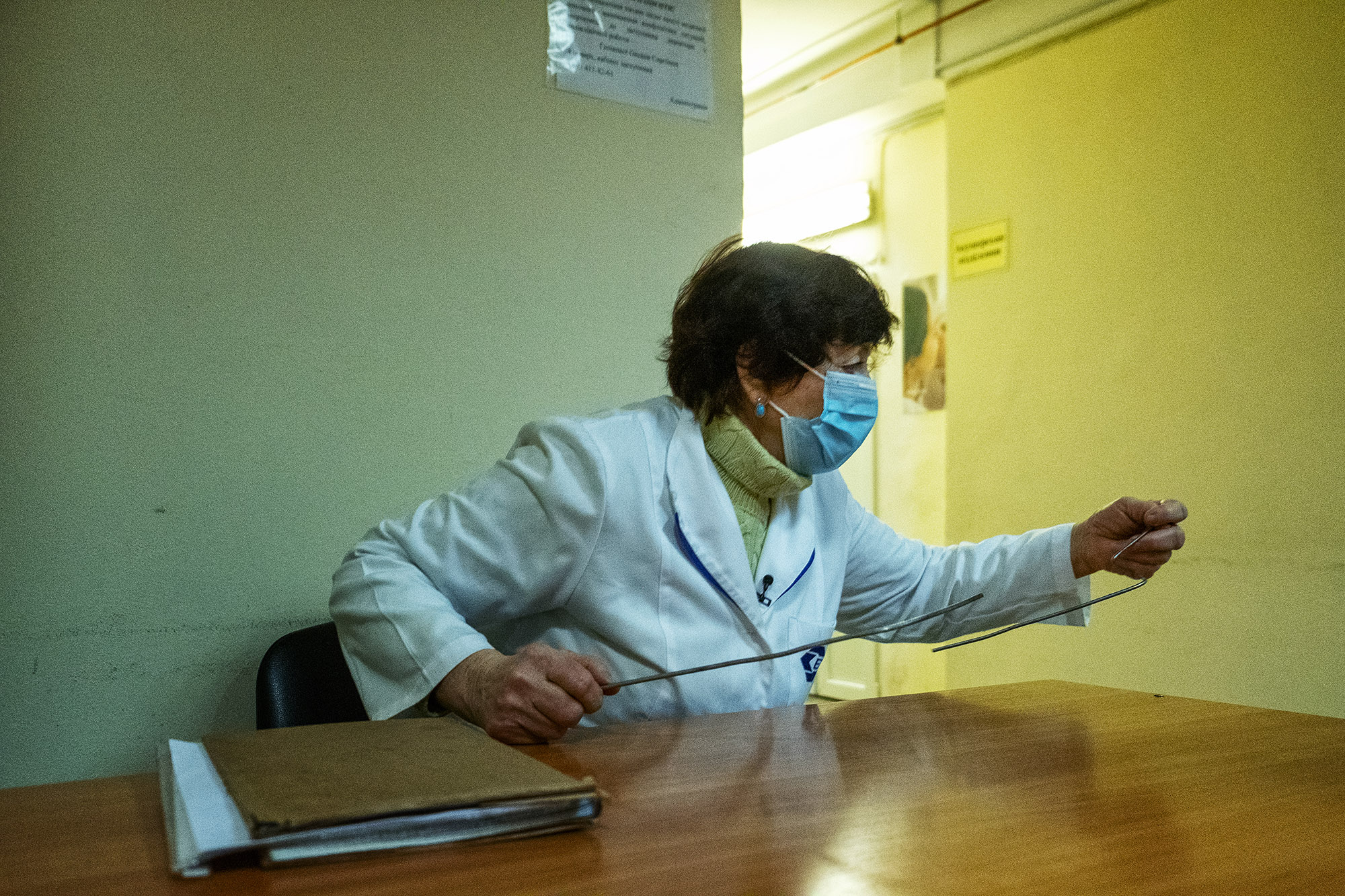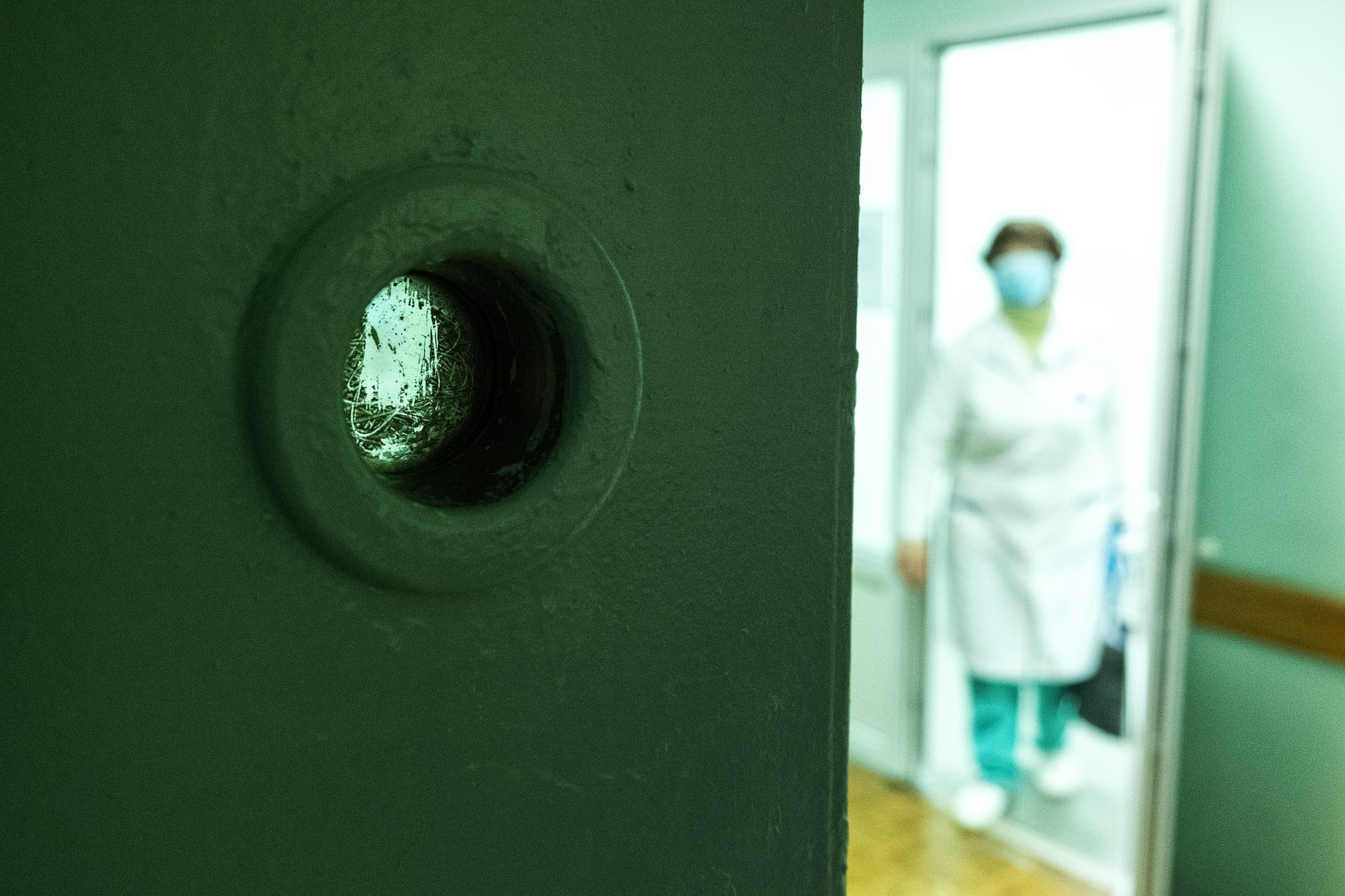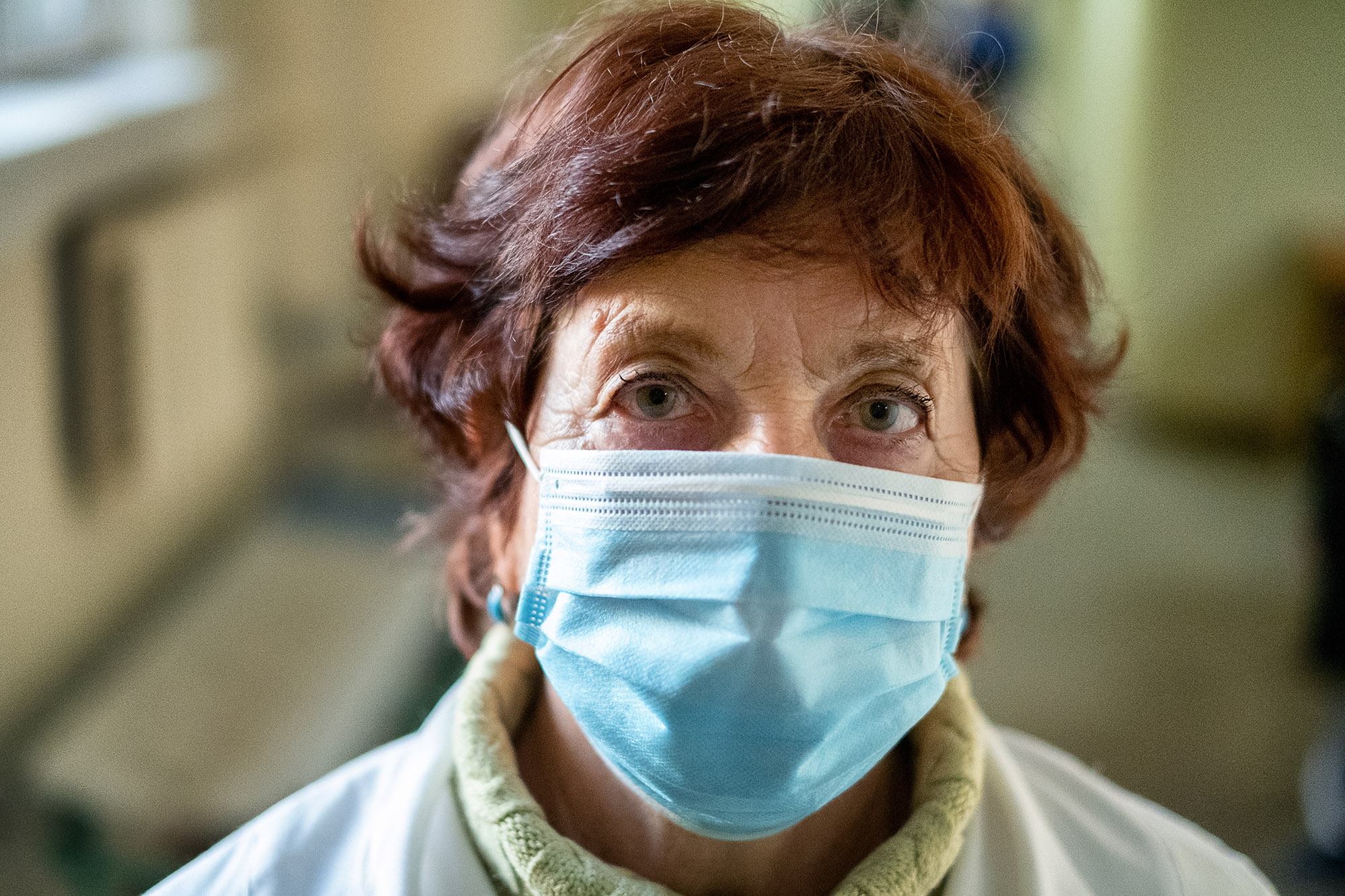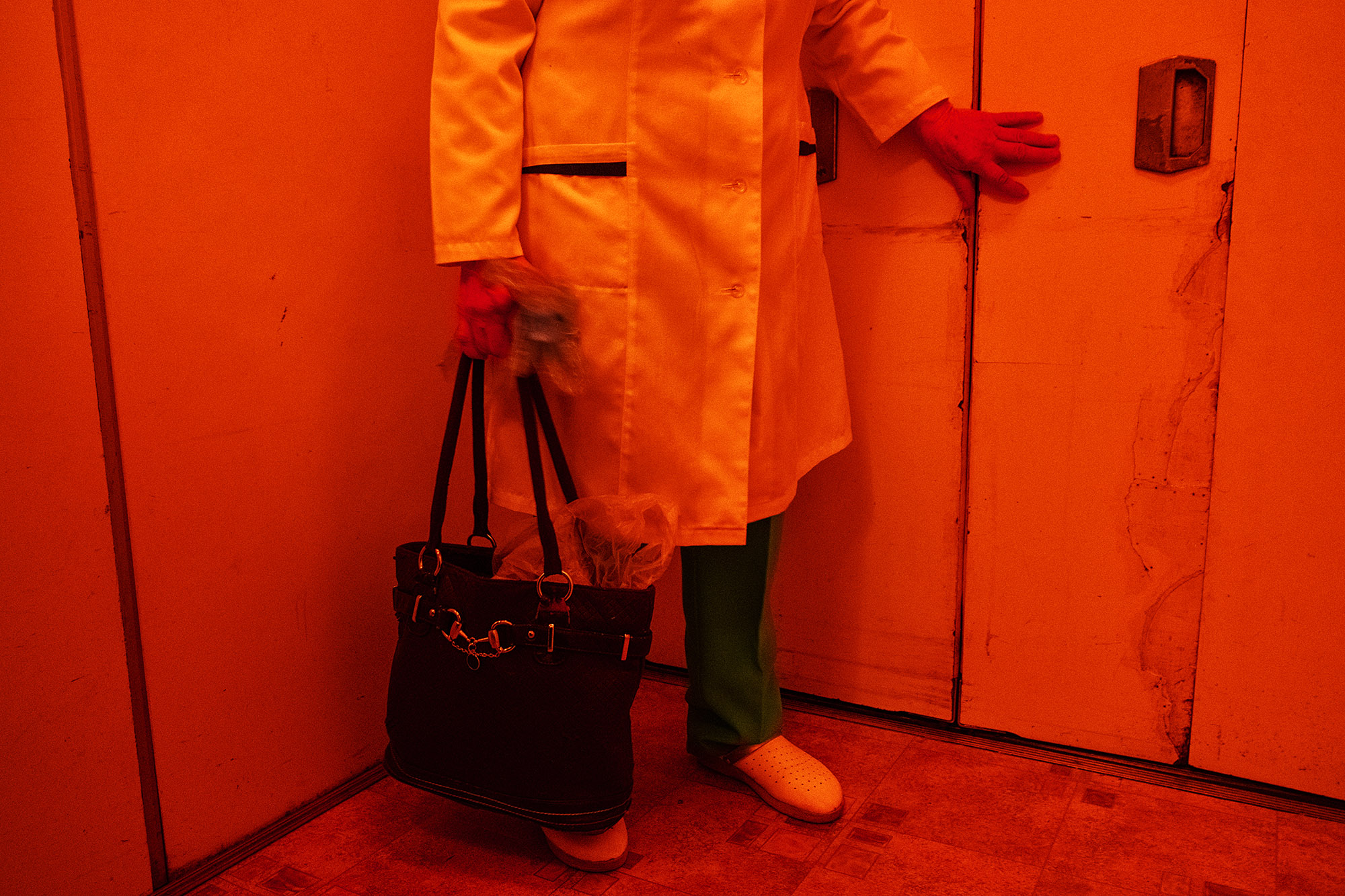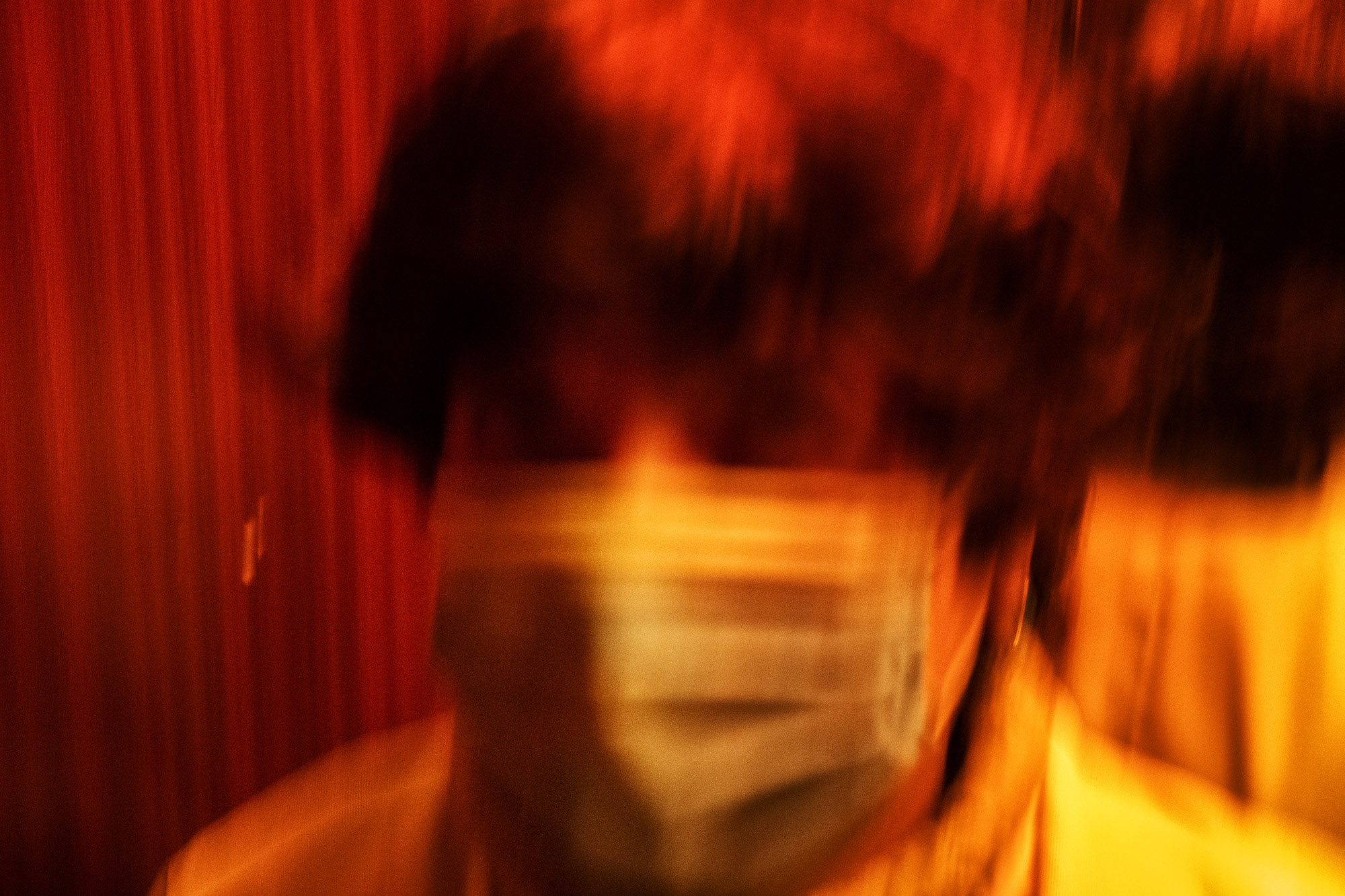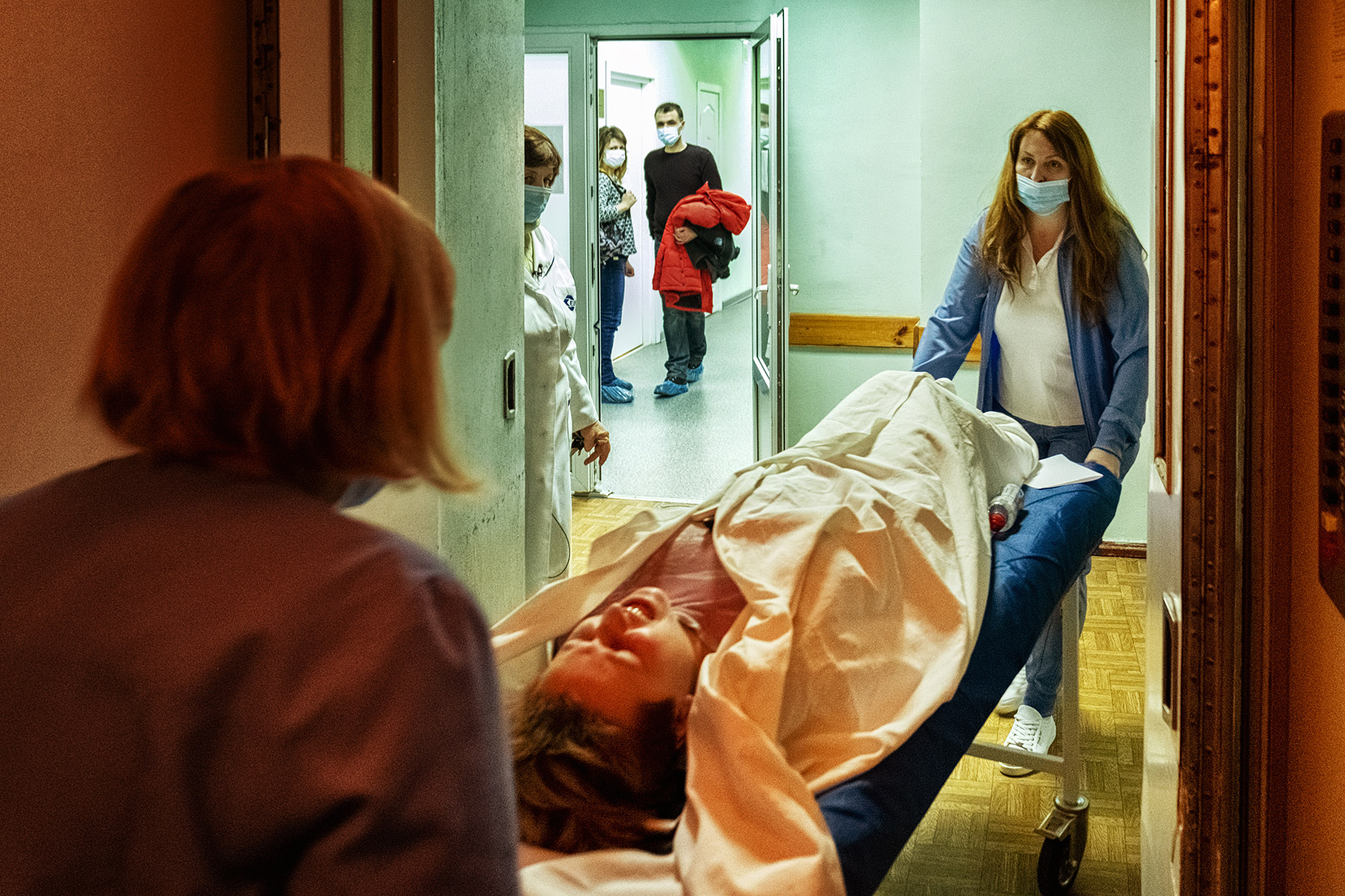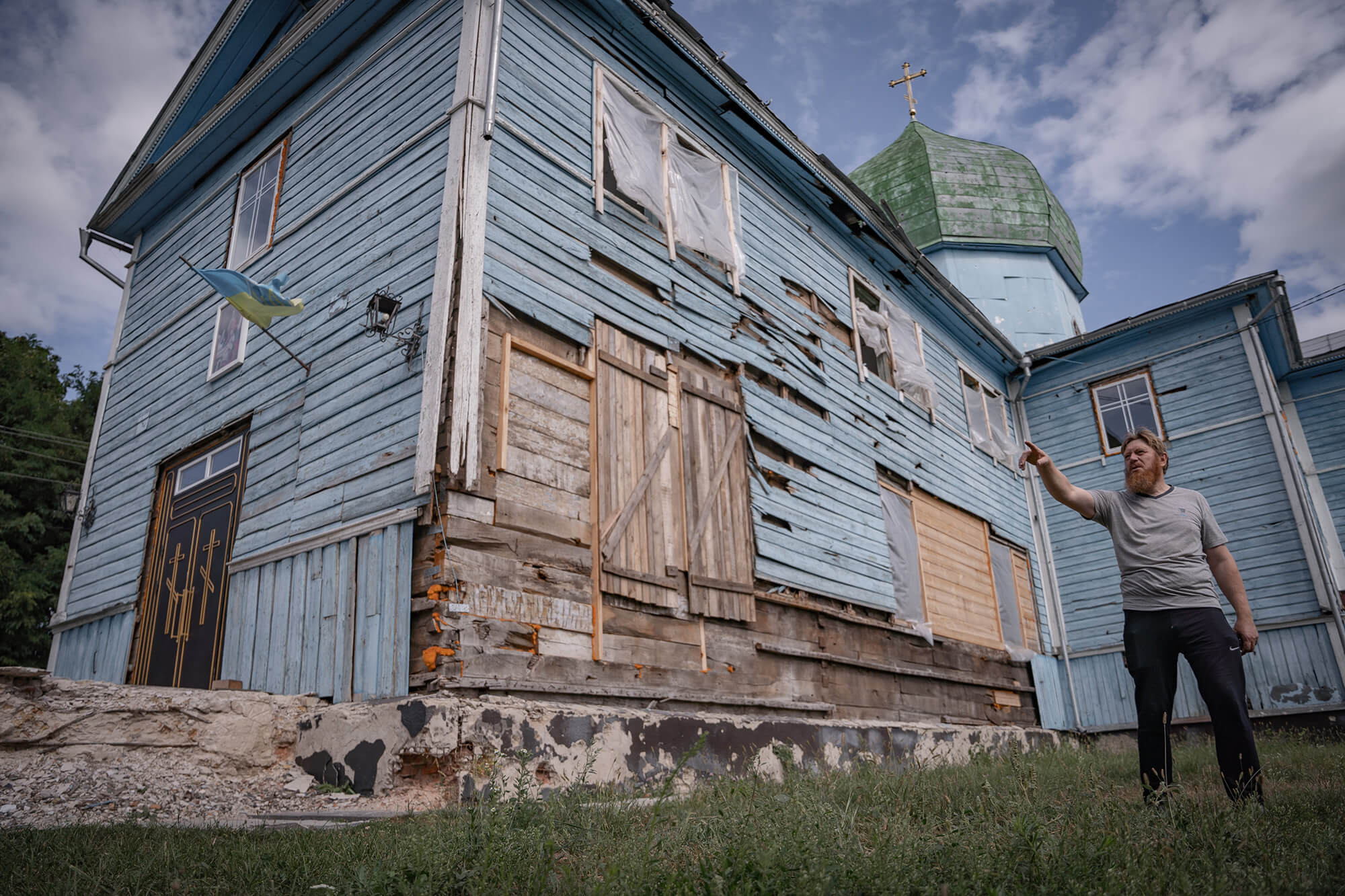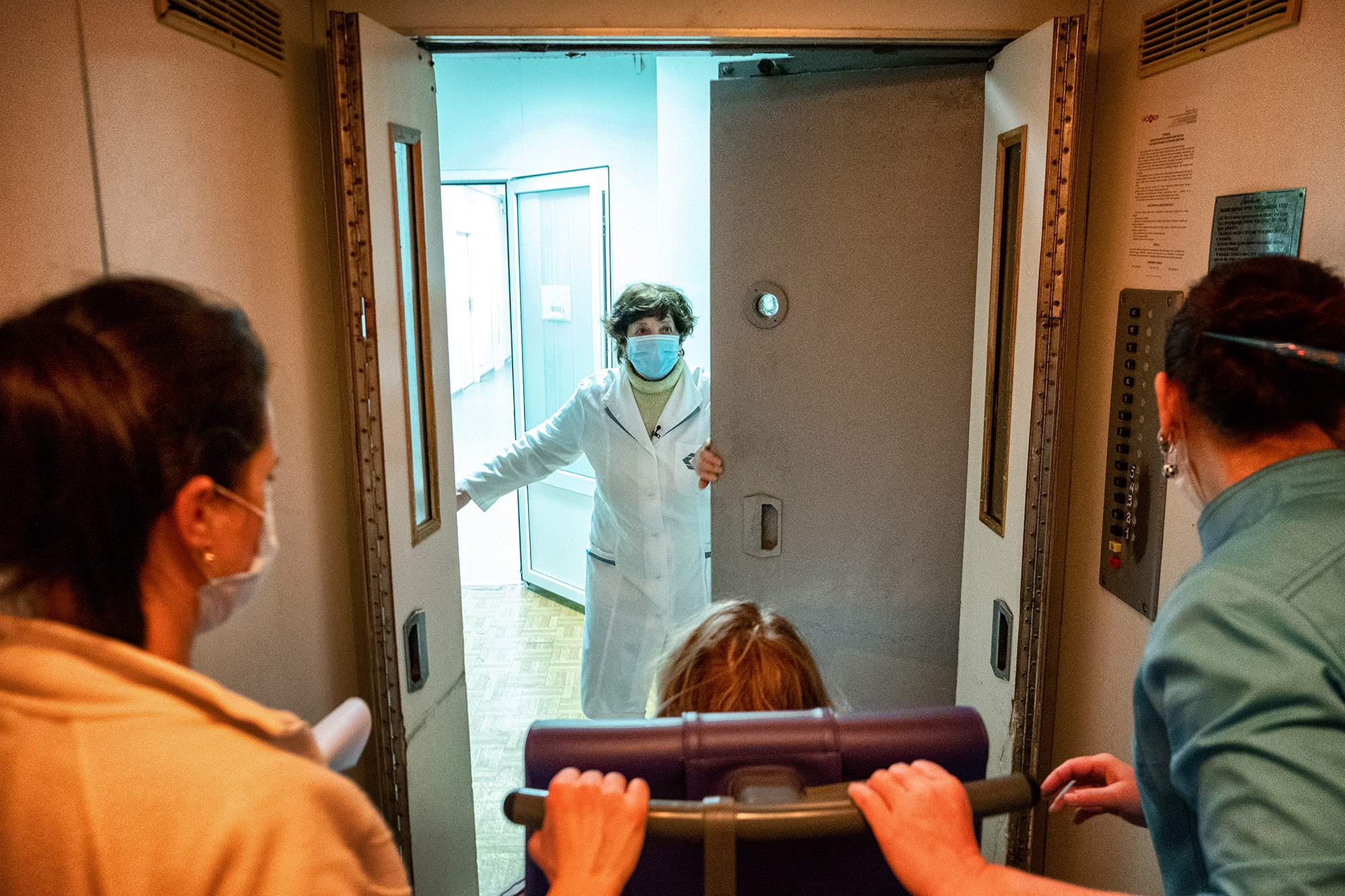
Auntie Masha’s Never Late
Rakishly, with the ease of a professional, 77-year-old Maria Oleksandrivna Popik pushes open the heavy iron doors of the freight elevator—one half, followed by the other. The doors creak and rattle, but give in.
“I can’t leave here even for a minute. They may call me any time—and I have to be here,” as soon as she says that, the elevator call goes off.
On the panel, next to the button for each floor, there is a light bulb—when the elevator is called, it lights up, and a high-pitched bell pierces the cabin. This time the signal indicates that the elevator is expected at the fifth floor. The intensive care unit is located there.
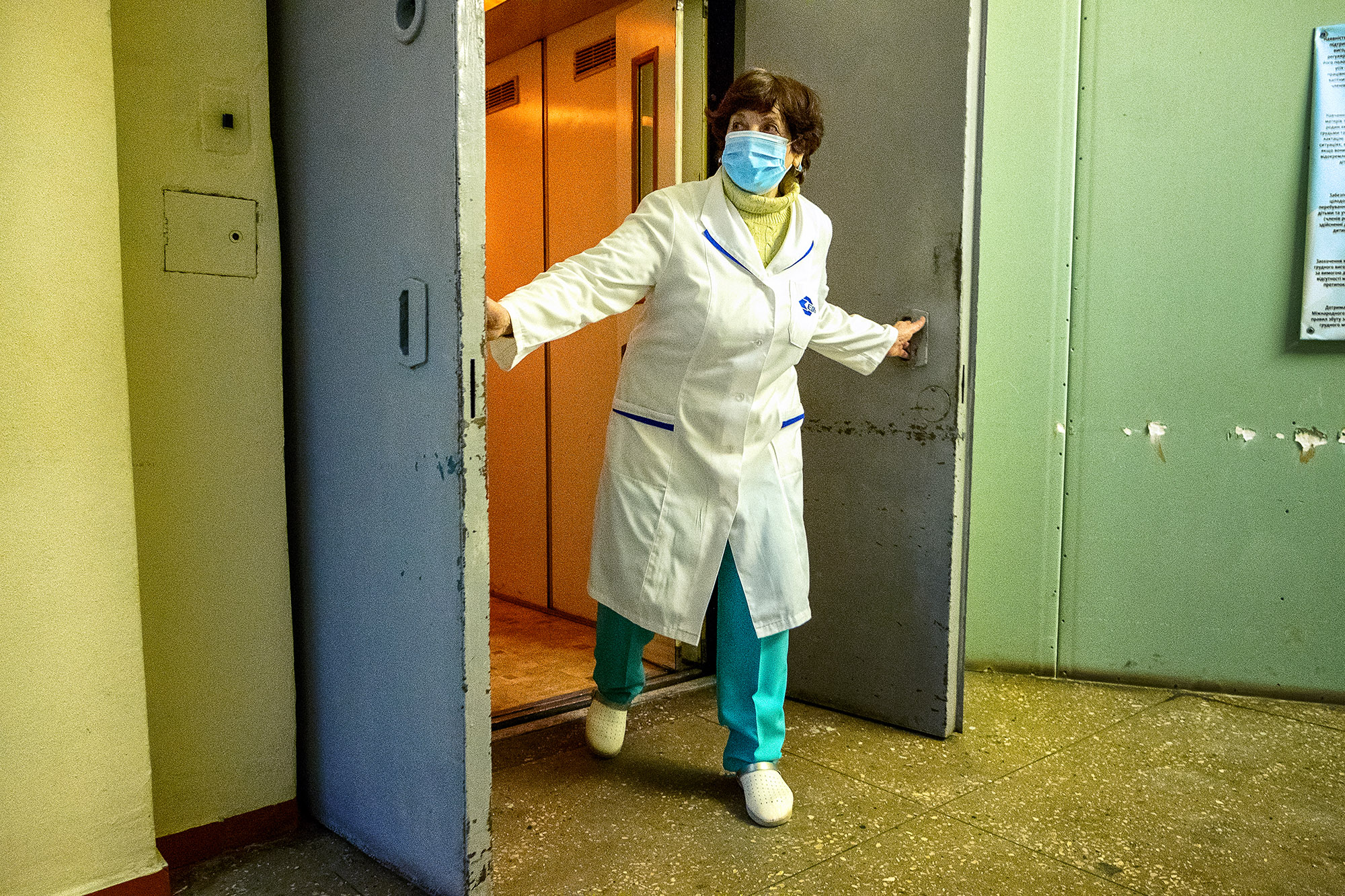
“We need to be quick,” the elevator operator says intently, deftly closing the doors.
For more than 17 years she has been operating the elevator in the capital’s maternity hospital No. 4 in Obolon district, which is now called the city center for reproductive and perinatal medicine. About a thousand women give birth here every year. And although the position of elevator operator exists here rather by tradition, than by necessity, the value of Maria Oleksandrivna’s work lies in something else.
Such a disturbing morning
It is 7 am. A typical high-rise building in the Obolon district of Kyiv. For such an early time we can hear an unusually cheerful female voice in the intercom. An upbeat and excited voice.
“Oh, have you arrived already? Right at my place?” she is surprised, although we arranged it all in advance. “Well, of course, come on in. The fourth floor, apartment 112.”
A short woman with expressive eyes opens the apartment door. She smiles and, meeting my gaze, seems to calm down a bit.
“Keep in mind, we don’t have much time. We have to leave in twenty minutes and not a minute later!” she speaks as if in the army and hurriedly heads into the kitchen.
Sitting on a stool, she picks up a delicate white cup from a Soviet tea set and sips on some black tea. A few Zolotyi Kliuchyk cookies lie on a saucer from the same set. That is all she has for breakfast.
“I don’t drink coffee because I have high blood pressure. I’m not young any more, you know. . . But all my life I have woken up at half past five every day. It’s a habit.”
Suddenly I notice that her hands are shaking, even though she seems so cheerful and energetic. They shake so hard that the tea, which has already cooled down, almost spills out of her cup.
“I’m sorry,” she says a bit embarrassed. “It’s just that I have never had a visit from real journalists. I’m not used to such attention. Despite my 59 years of experience.”
Her hands keep on shaking. Probably realizing that she won’t be able to finish her tea, Maria Oleksandrivna leaves her cup half full and goes to get ready to leave.
“When I wake up, the first thing I do is put my hair in… what is it called? Oh, curlers. Once I have curled my hair, I do my eye make-up. Then I do my eyebrows, put on some lipstick. And before that, of course, I apply some face cream,” she tells us about her daily rituals, making a line along her wrinkled lips with a lipstick. To do this well, she has to stop for a moment to calm her excitement. She dolls herself up every morning.
“It would be embarrassing otherwise! Such is my job: as soon as people enter, the first thing they see is me. If I don’t look good, people will feel uncomfortable. And I will, too.”
Maria Oleksandrivna is showed out by her daughter, her grandson and a cat. The daughter hugs her, makes the sign of the cross over her mother and barely audibly whispers in her ear that she is proud of her.
“Oh, stop it, sweetheart,” she waves aside. “You will make me cry, and I have just done my make-up!”
Twenty years never late
Although it is sunny outside, it is a cold morning. And the wind is strong.
“Let’s walk there!” Maria Oleksandrivna decides, despite the fact that our car is parked in the yard. “It’s only 10 minutes at a brisk pace.”
The woman has been walking to work, taking this path through the yards between apartment buildings, for 17 years.
“Every single day,” she confirms. “And I have never been late.”
“And aren’t you tired of your work?”
“I like it. I communicate with people. We have a good team. So. . . Every morning I really want to go to work. If I had got sick of it, I would have left,” for some reason she becomes more serious, but then relaxes and adds. “I already have grandchildren and their children. I live for them. They are still young—their grandmother wants to make them happy more often. I would treat them to candies and toys. I want everything to be good for them. And as to myself. . .” waving her hand, she falls silent.
As we talk, I never notice that we have reached our destination. The watch shows 8:10 am.
A degreed elevator operator
“Good morning, Auntie Masha!” a colleague greets her at the entrance.
“They call me by different names,” she says, smiling back. “Auntie Masha is somehow homely, and kind.”
She shows us a tiny, dimly lit room—a meter by half a meter—full of hangers with overalls and shelves with various accessories. The cleaners and elevator operators change their clothes here. Maria Oleksandrivna puts on an old, but well-washed and ironed white coat.
“Let’s get to work!” she says.
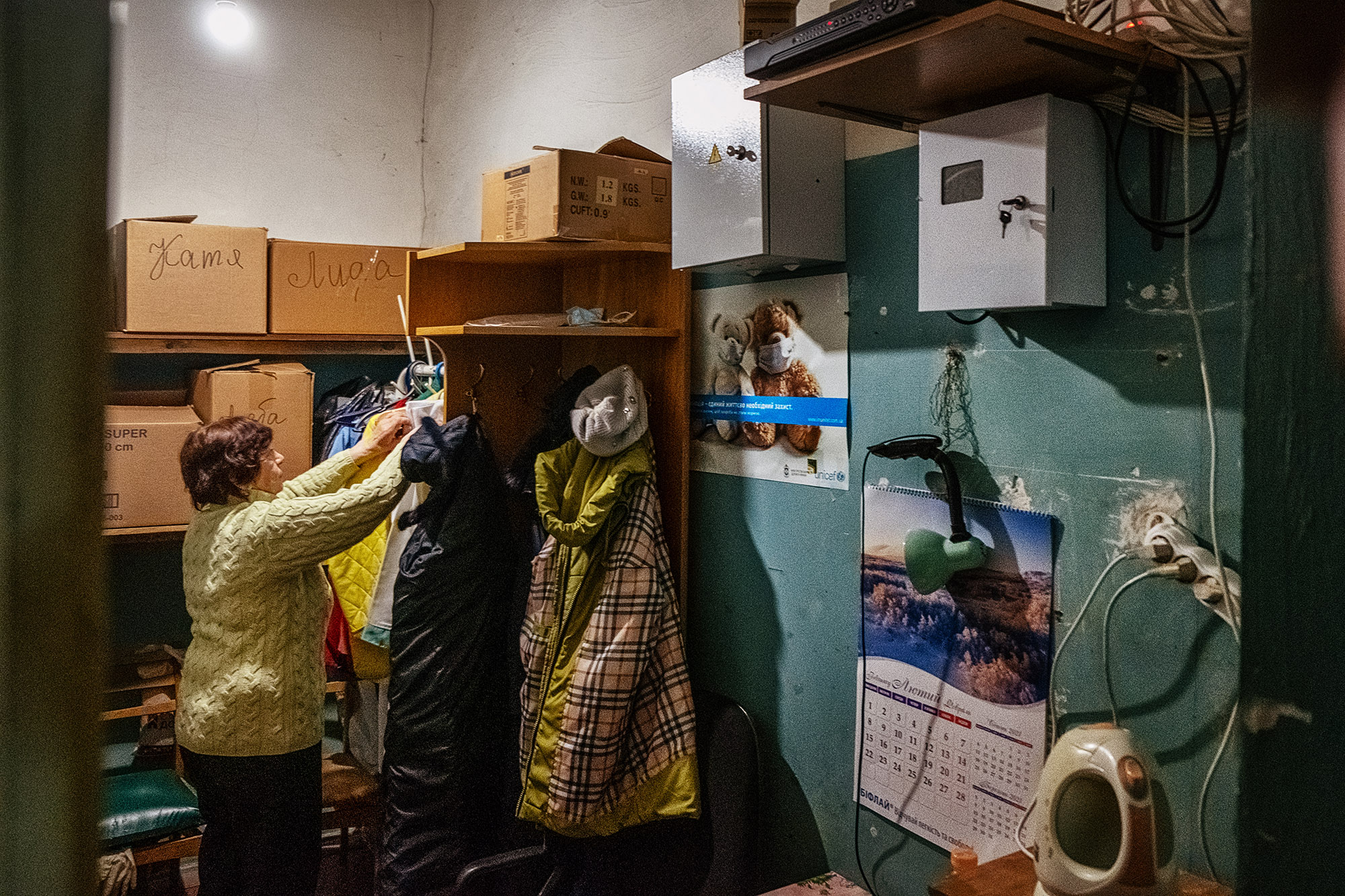
Heading down a long corridor, we are approached by noticeably tired doctors from the night shift. Auntie Masha greets everyone and asks them about their day. Finally, we arrive at her workplace—a table and a chair between two elevators.
“We had our own room, but after reconstruction, the room is gone. . .” it seems like she is almost apologizing. “We are now sitting here in the middle of the corridor, in the draught and cold. . . But I have nothing to complain about,” she suddenly catches herself. “They were going to insulate the area, just haven’t done it yet. So I put on warmer clothes, as simple as that.”
She writes in the log book to confirm her shift has started. Then she takes long iron wire from the top drawer of her table and approaches the elevators. There are two of them. One is an ordinary, small elevator with brown doors made from imitation wood. These can be found in almost every high-rise building built in the Soviet times. The second elevator is bigger and is a service one. It has a large iron door with a small peep-hole, blurred of age and dust. The light in the elevator is dim and depressing. It has a typical hospital smell of drugs and disinfectant.
“First I check the elevator doors to see whether they are working properly,” Auntie Masha gets on her toes, sticks one of the wires into a special hole in the upper corner of the elevator door, and with an elegant movement of her hands pushes them apart. “Everything is fine, this elevator is operational. If someone gets stuck, I help them get out.”
“Does this happen often?” I ask her, imagining how an elevator stopping could scare a woman in labor.
“Not very often here, thank God. But when I serviced the Obolon houses, we had up to twenty-five cases a day. You know, once that residential area was built, we immediately started getting tons of calls from all over the neighborhood.”
Auntie Masha has been working with elevators for over half a century. She is a degreed elevator operator. She says it was possible in Soviet times. But working in a hospital means increased responsibility.
Every year Auntie Masha undergoes recertification—it is important to refresh the skills and be ready to provide emergency technical assistance and rescue patients, because they may need emergency medical care.
Auntie Masha closes the door and the elevator goes up. There isn’t enough air to breathe inside. And we are wearing masks. Maria Oleksandrivna spends twenty-four hours within four closed walls—that’s how long her shift is. She works every fourth day.
A journey for a new life
Our conversation is interrupted by another high-pitched elevator call. Auntie Masha is called to the third floor. There are already two nurses waiting for her, accompanying a young girl in a gurney. The girl sighs heavily, either because of pain or worry. In a few minutes, she will undergo a complicated surgery on the fifth floor.
“Gently, take it slow!” opening the door, Auntie Masha rushes out and helps push the gurney into the elevator. “Sweetheart! Don’t worry! Auntie Masha’s elevator is a lucky one. You will see, everything will be just fine. In a few hours you will be all fixed up and going back to your ward.”
“Thank you,” the girl whispers, smiling faintly.
As we push one patient out of the elevator, they are already calling us from the intensive care unit:
“Oh, Auntie Masha, you’re still here? Wait a moment! We are almost there!”
Other nurses push a gurney into the elevator—after a day in intensive care, a new mother is transferred to a regular ward.
“Sweetheart, can I congratulate you?”
“You can. . .” she answers exhaustedly, not even opening her eyes. “It’s a boy.”
“Oh, I am so happy for you!” Auntie Masha cannot help but carefully take the exhausted mother by the leg. “How are you feeling?”
Having seen the woman to the ward, Auntie Masha returns to the elevator truly elated. Yesterday, she says, that woman was still in labor and there was a threat to her life and the life of her baby. A half a minute journey in the elevator is enough for Auntie Masha to chain hearts with women in childbirth. She finds words for everyone, supports and encourages them.
“I always treat them humanly, kindly. That’s how I do things.”
In an hour with Auntie Masha, we make a dozen trips up and down. Gurneys, patients, tools, tests. In 24 hours she makes two hundred trips. In seventeen years in the maternity hospital—more than 300,000 trips. When she has a minute of free time, Auntie Masha sits at her table between two elevators and reads. Today she takes Gabriel García Márquez’s One Hundred Years of Solitude from the top drawer.
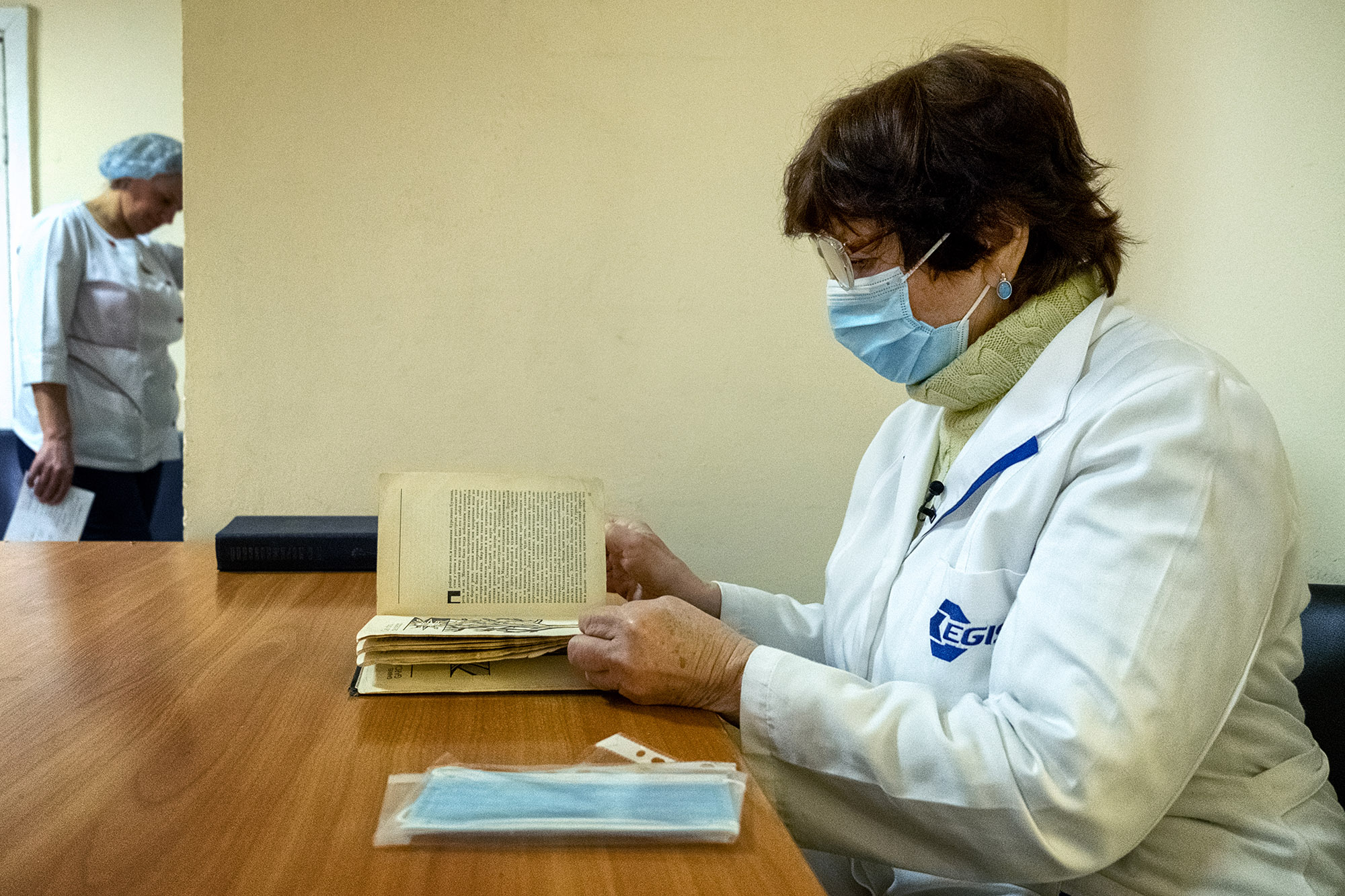
“I’m not lonely, sweetheart,” she answers my dumb question with a smile and gently takes my hand like my own grandmother. “New lives are born here, and I am near. I look at those babies, I admire them. And they look back, blinking their eyes, as if they understand everything. They are the ones keeping me here.”
Suddenly we hear that high-pitched elevator call again.
“I’m on my way! Almost there!” she says loudly, although she knows for sure that no one can hear her on the fifth floor. She just wants everyone to know: she is in a hurry.
She simply can’t be late.
[This story was created with support of the Royal Norwegian Embassy in Ukraine. The views and opinions expressed in this publication are those of the authors and do not necessarily reflect the official position of the Norwegian government.]
Have read to the end! What's next?
Next is a small request.
Building media in Ukraine is not an easy task. It requires special experience, knowledge and special resources. Literary reportage is also one of the most expensive genres of journalism. That's why we need your support.
We have no investors or "friendly politicians" - we’ve always been independent. The only dependence we would like to have is dependence on educated and caring readers. We invite you to support us on Patreon, so we could create more valuable things with your help.
Reports119
More